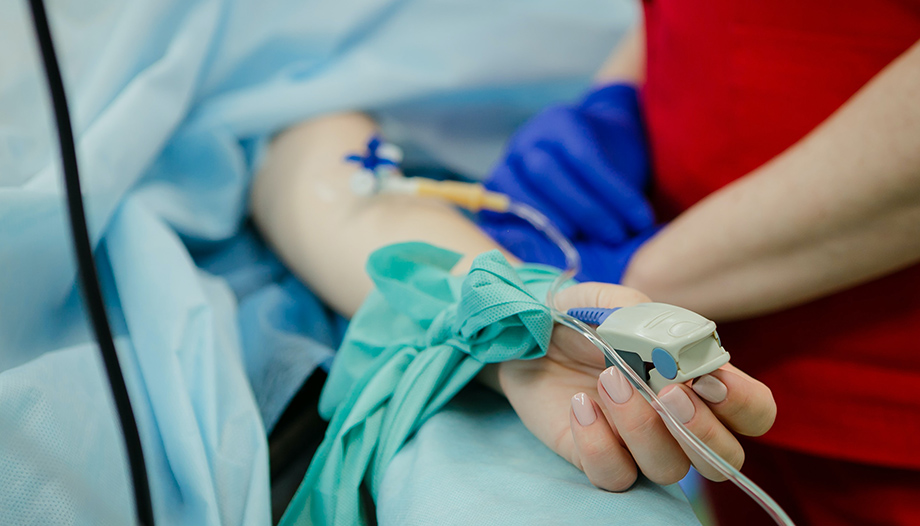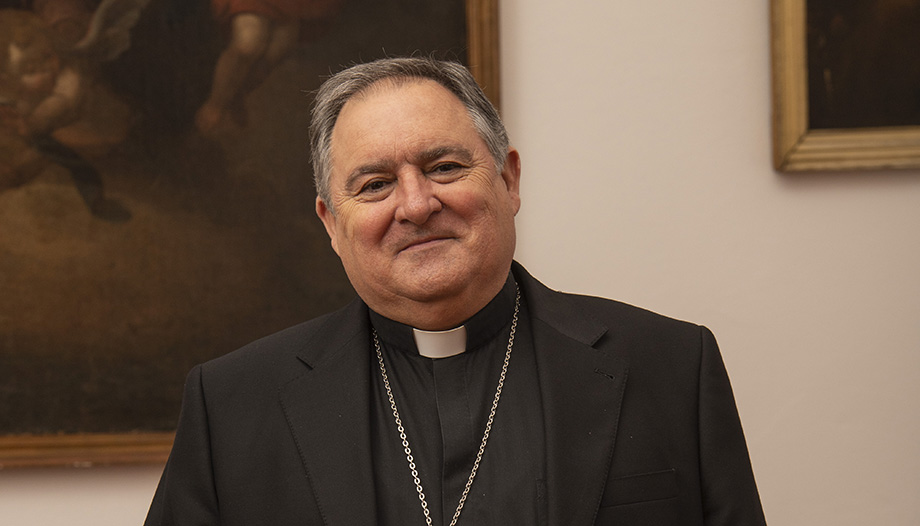– Supernatural Sick person's Easter is being held this year under the eloquent motto "Let's take care of each other.". A call to redouble efforts from society, and especially from Catholics, to foster a true society of care for the most vulnerable.
Msgr. José Mazuelos, Bishop of the Canary Islands and president of the Episcopal Subcommission for the Family and the Defense of Life has granted an interview to Omnes in which he discusses aspects such as the need for a pastoral care ministry and the dangers of laws such as the recently approved Euthanasia law in Spain.
How can we inculcate more effectively in Spanish society that life is a gift? Something we Catholics do not do or do not explain well....
This is one of the great challenges we have, as human beings and as Catholics, to show the truth of life as a mystery and to educate in the truth of the social dimension of the human being. We have to try to show children and young people that the reification of life only brings suffering. It is necessary to educate in responsible freedom.
You have urged the promotion of palliative care in Spain, and comprehensive support. We all want to suffer less when an advanced disease occurs... How can we move forward along these lines? Perhaps with a specialty in palliative medicine in the faculties?
Spanish society is not prepared to face a euthanasia law based on the freedom of the individual for the simple reason that there are no palliative care services to offer to all patients.
Today we still lack such care and the terminally ill continue to suffer unbearable pain and suffering that would be solved with good palliative care.
Many families with terminally ill patients have no help, something that in many patients causes guilt that leads them to ask for euthanasia.
Bishop José Mazuelos
This lack of palliative care can lead to the request for euthanasia and its unjust application, since it has been medically proven that 99% of patients who request euthanasia when palliative care is administered stop requesting euthanasia. Likewise, society is not prepared, since families with terminally ill patients do not have any help, neither financially nor in terms of assistance, which in many patients causes guilt that leads them to ask for euthanasia.
Therefore, the solution lies in offering palliative care therapy that helps patients in their physical, family, psychological and spiritual dimensions.

In this regard it is good to listen to the experience of palliative care physicians and for this nothing better than listening to Dr. Sanz Ortiz, who, after describing the physical and spiritual sufferings of the terminally ill, states that: "There is no doubt that any human being who cannot have adequate relief of all his symptoms in the situation described will almost certainly ask for his life to be ended. But not because he desires death, but as the only way to control his symptomatology. The sick person's pleas for termination of life are almost always anguished requests for assistance and affection. They indicate a need for help. If we exchange fear for security, abandonment for companionship, pain for relief, lies for hope, and therapeutic ingratitude for symptom control. If we help him to solve his problems with God, with himself and with others, it is very likely that the request for euthanasia will be forgotten by the patient in almost 100% of cases.". He concludes by stating that there have been no cases of euthanasia requests in the approximately 1,000 patients who have died in his palliative care service.
The law on euthanasia includes the right to conscientious objection in Art. 16. How do you view the Registry of conscientious objector healthcare professionals provided for in the law? Doctors and other experts consider it a deterrent.
The imposition of the right to self-determination brought about by the euthanasia law, based on a doctor-patient relationship, understood as an opposition of interests, as well as the imposition of a medicine of desire, cannot forget the autonomy and rights of physicians.
The freedom of healthcare personnel and their right not to do to the patient what they consider undesirable or harmful, for just reasons, cannot be coerced. In other words, the freedom of the physician and of all those responsible for the medical act cannot be annulled in the name of the patient's freedom. This is why conscientious and scientific objection is essential. That is, the right of the physician, in the face of an exaggerated claim of autonomy, not to administer a treatment that he/she considers harmful or disproportionate from his/her science and experience.
The freedom of the physician and of all those responsible for the medical act cannot be annulled in the name of the patient's freedom.
Bishop José Mazuelos
Why is it important to make a living will or advance directives about medical care? What exactly do you call a living will?
The Living WillWe can say that it arises to defend the patient from therapeutic persistence or therapeutic obstinacy. In most cases, the Living Will is seen as the exercise of the autonomy of man for the moments in which he cannot exercise it. However, it has been used to claim absolute patient autonomy in order to introduce euthanasia through the back door.
The Living Will is a procedure that assists the family and physicians in making decisions in favor of the patient's life and well-being.
Bishop José Mazuelos
Today, bearing in mind that the new regulations state that euthanasia cannot be applied if the person has previously signed a document with instructions, living will, advance directives or legally recognized equivalent documents, it is necessary, as stated by the Episcopal Conference, to register advance directives specifying that therapeutic obstinacy and euthanasia should be avoided when the patient loses rational capacity, thus preventing the physician, the family or the State from anticipating death. We could consider it as a procedure that helps the family and physicians to make decisions in favor of the life and well-being of the patient who is unable to express his or her Informed Consent.











